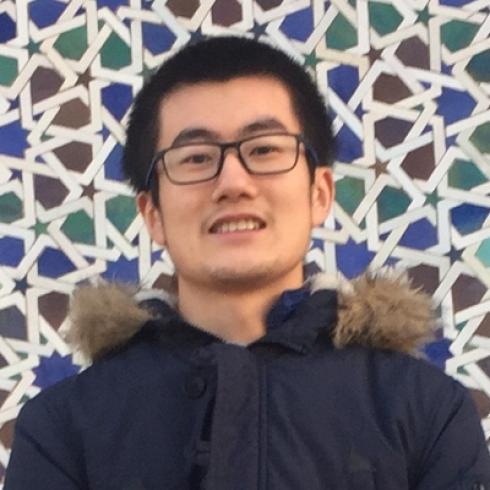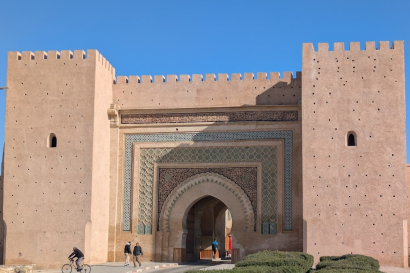My semester in Morocco started with the intensive Darija (Moroccan Arabic) course. I arrived in Morocco 10 days before the program start date, and though with no prior exposure to either classical Arabic or other Arabic dialects, I picked up a decent amount of Darija and soon after the program started, moved from a beginner Darija class to an advanced class where everyone else has studied classical Arabic. Here I’ll share some of my language learning tips.
Set Fluency as Your Goal
While I was studying abroad in Prague, every staff member in my program was very discouraging about attempting to become fluent in Czech over one semester, and specifically said that one cannot become fluent in Czech in one semester. I believed that it was true, confined myself to the textbook and the classroom, and thought it was totally natural to not become fluent after one semester of Czech class. By the end of the semester, I surprisingly found myself capable of describing past, present, and future events using the three tenses I learned, and figured that if I knew more adjectives and nouns, I could probably become fluent in Czech (with a lot of grammar mistakes of course, but still understandable).
The point here is not about whether I could’ve become fluent in Czech or not, or whose fault it was that I did not become as proficient in Czech as I wanted. The issue here is that by thinking that fluency is unachievable, the thought becomes a self-fulfilling prophesy. Everyone’s language learning potential is unpredictable, and only by believing in the impossible can one realize the highest possible potential.
Don’t Be Intimidated
After I switched to the advanced Darija class, I’ve had several friends say to me that they heard I switched to an advanced class without prior academic background in classical Arabic and that they thought it was unbelievable. In all honesty, I think everyone in my program can do well in the “advanced” class because Darija is pretty different from classical Arabic, and while knowing classical Arabic helps, Darija is a new language to everyone. In the advanced class, the professor explained everything mostly in Arabic and French, with a little English, and a lot of impromptu sketches that helped a ton in explaining. In my opinion, one can totally keep up with the class with some extra efforts. You have to throw yourself out there to realize the “advanced” Darija class is not that intimidating.
Be A Kid
As language learners eager to grasp the regularities of grammar, we are often bothered by the annoying exceptions that don’t follow the general rules. I found that Darija is harder in terms of verb conjugations, and I used to be very frustrated when I found out that a lot of verbs do not follow the regularities that I thought I mastered.
While such frustration is normal, it is not helpful to language learning and may easily exhaust one out. The best and most sustainable state of mind that I discovered is simply to be a kid. When I first learned Chinese, I never questioned grammar, word choice, etc. I listened to what people said and simply imitated and repeated. For native English speakers, which I assume most of the readers are, I guess you never question why the plural for mouse is mice instead of mouses, do you? Languages, a lot of the times, don’t really make sense. But the best state of mind is to just embrace it.
Have Fun
This is probably the case in your survival language course: you received a textbook with a lot of useful, simply, short expressions. You’ve learned how to say “a bit”, “go”, “school”, “far”, “I want hot water”, etc., but have you ever tried to put things together and say “school is a bit far and I do not want to go to school”? The sentences that you put together do not have to be grammatically correct; the key is to work with what you know, express more ideas, and most importantly, have fun. Once you truly feel the joy of communicating in a different language, such pleasure will keep you going along this journey.

Chen Yu
<p>Speaking fluent Mandarin Chinese, English, and conversational Czech, Yu Chen is currently looking to perfect his French during his upcoming semester abroad in Rabat. Passionate about revealing social and structural inequalities around the world through film and media, Yu Chen is pursuing a bachelor’s degree in Gender & Sexuality Studies and Digital Media Production.</p><p>Previously, Yu Chen has studied environmental issues in Okinawa, conducted research on social practice art in Puerto Rico, exchanged at the Film & TV School of Academy of Performing Arts in Prague, and tasted 44-year-old homemade Serbian Rakija in Belgrade.</p>









